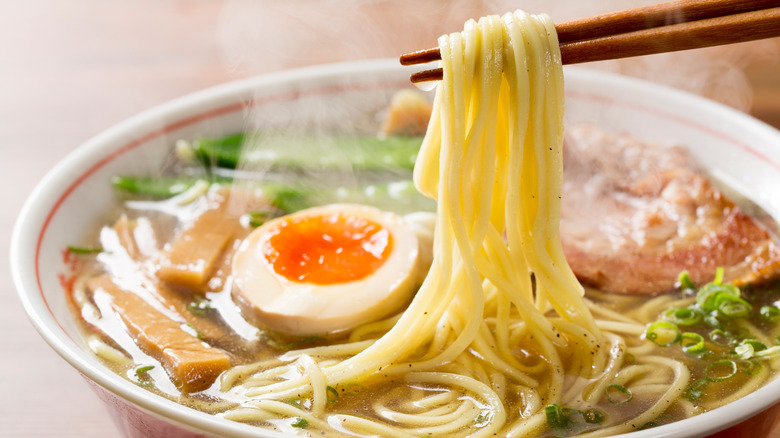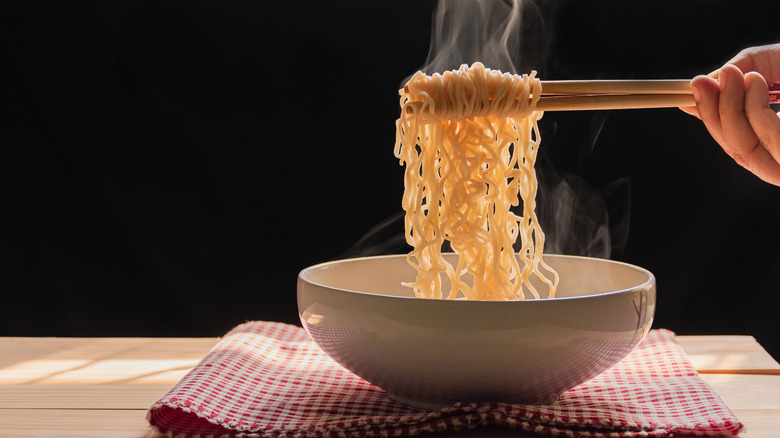How Long You Should Really Be Boiling Your Ramen Noodles
Whether you're a college student eating a bowl of it over a thrift store hot plate or making a lunch that isn't as heavy as pizza or burgers, ramen noodles are both filling and, most importantly, cheap. It joins the ranks of inexpensive shelf-stable meals right up there alongside Campbell's canned soup and boxes of rice.
Of course, just because it's cheap doesn't mean you should assume it's just junk food. There are plenty of things you can do with ramen noodles aside from just tossing the noodles and flavor packet in a pot. The Wicked Noodle offers a wide variety of recipes and add-ons that can improve your average bowl of ramen, from hard-boiled eggs to bok choy to bell pepper. According to the Inquiring Chef, you can make an inexpensive but hearty stir-fry using chicken, ramen noodles (obviously), and some pantry staples. If you're feeling like experimenting you can even make dessert with your ramen noodles, such as Food Network's banana-coconut ramen pudding.
But whether you're making stir-fry or pudding, ramen lovers can agree on one thing: There's nothing quite as bad as finding that your noodles have been boiled down into a mushy, gummy mess floating in a bowl of chicken broth. How exactly does that happen? You've followed the directions on the package to a tee, didn't you? If so, maybe you need to go against the wind and not follow those directions.
You should cook your ramen for two minutes
According to chef Roy Choi, two minutes is the correct amount of time that you should be cooking your pasta (via NYT Cooking). While Choi notes that the timing can differ based on factors like brand or type of noodles, the limit of two minutes can give you a chewy, but firm, pasta that won't dissolve into mush or a dense mass.
Epicurious, while performing a sort of experiment to see how exactly one can get the best tasting ramen from an average grocery store package of ramen, also noted that the directions of 4 to 5 minutes produce unfirm, overly cooked noodles. Epicurious not only suggests cooking for the recommended two minutes but also fan the noodles, or remove them from the broth and move air across them with anything from a paper fan, the lid of the pot, or your hand. This, according to Epicurious, helps to stop the cooking process and keep the noodles al dente.
Aside from lowering the cooking time of your ramen, there are other ways you can improve on your everyday bowl of ramen. Redditors, for example, suggest using sesame oil or vegetables in your ramen to give it a much richer and complex flavor than the flavor packet alone can add.

